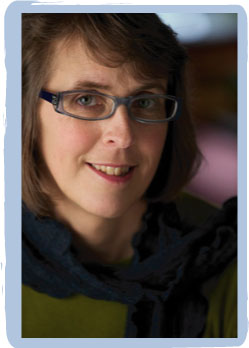overview | career | education | favorite sayings
connect! ann at designactivism.net, @atlasann, ![]() View my profile
View my profile
OVERVIEW
Thousands of designers who need to master the interdisciplinary nature of sustainable design or design activism turn to author and collaborative design strategist Ann Thorpe. Readers sing the praises of The Designer’s Atlas of Sustainability, calling it “inspiring,” “incredibly useful,” “brilliant,” “sensitive,” and “a must read.” [see http://www.designers-atlas.net] Thorpe’s newest title is Architecture & Design versus Consumerism: How Design Activism Confronts Growth.
Thorpe’s been recognized for co-founding the first-ever chapter of the U.S. Green Building Council, Cascadia, and has helped many organizations develop fully subscribed events and programs on topics such as product stewardship and sustainable consumption. Thorpe is an associate member of the American Institute of Architects (AIA) and a member of the Design Research Society.
A decade’s worth of students and professionals worldwide take inspiration from Thorpe’s accessible and generously illustrated talks on sustainable design and design activism, which audiences describe as “brain-opening,” “intriguing and insightful,” and full of “unusual angles.” Thorpe discovered her passion for unusual angles when at age 14 she spent time in Paris with her French class, seeing a different culture as well as seeing her own from a different perspective. Thorpe’s aim is to harness multiple perspectives to help architects and designers become better change agents for the common good.
CAREER
I’m lucky to have worked in a lot of interesting settings. Past employers have included a large energy utility, a public agency, a nonprofit group and several universities. Find out more on my linkedin profile. Most recently I worked with a startup (Luum.com) that’s building a platform to motivate and maintain individuals’ sustainable transportation choices.
FAVORITE SAYINGS
My favorite saying now is, “don’t tell yourself ‘no,’ let someone else tell you ‘no’.” This is something my mom always said to me when I was growing up and giving excuses for why I couldn’t do this or that. The saying wasn’t my favorite then, but it really helped me grow. My other favorite saying comes from an Australian friend. When I first heard it I was stunned, amused—and relieved: “If it’s worth doing, it’s worth doing badly.” Perhaps this is a corollary to the expression ”don’t let the perfect be the enemy of the good” and it’s definitely related to “if you’re not falling down, you’re not trying hard enough.” Consider, for example, Buckminster Fuller, who liked to say he was, “the world’s most successful failure” –a guy who tried hard and fell down, sometimes.

